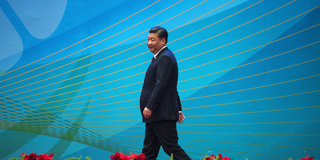 Fred Dufour/Getty Images
Fred Dufour/Getty Images
中国的孤独发展模式
伯克利—看起来,中国领导人现在已经抛弃了邓小平的“韬光养晦”的建议。在10月份在北京举行的中共十九大上,习近平主席宣布中国进入了“新时代”,将中国的治理体系作为可供其他国家效仿的模式呈现。习近平说,“希望加快发展、保持独立”的领导人,都应该将中国视为“新的选择”。
发展中国家,特别是东南亚和撒哈拉以南非洲地区,似乎对这一可能性敬畏不已。中国官方新闻机构新华社甚至提出,随着西方民主国家的式微,“开明的中国民主”能够提供一个前进方向。
在各种高调的叙事中,有些问题值得一问:什么才是经济和政治发展的中国模式?它真的是更可取的道路吗?
https://prosyn.org/x8sNDCOzh
To continue reading, register now. It’s free!
Register Now
Already have an account?
Log in



伯克利—看起来,中国领导人现在已经抛弃了邓小平的“韬光养晦”的建议。在10月份在北京举行的中共十九大上,习近平主席宣布中国进入了“新时代”,将中国的治理体系作为可供其他国家效仿的模式呈现。习近平说,“希望加快发展、保持独立”的领导人,都应该将中国视为“新的选择”。
发展中国家,特别是东南亚和撒哈拉以南非洲地区,似乎对这一可能性敬畏不已。中国官方新闻机构新华社甚至提出,随着西方民主国家的式微,“开明的中国民主”能够提供一个前进方向。
在各种高调的叙事中,有些问题值得一问:什么才是经济和政治发展的中国模式?它真的是更可取的道路吗?